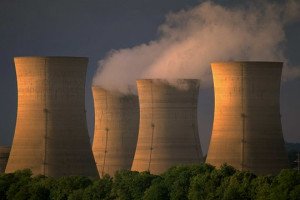23 September 2011, Sweetcrude, Lagos- For Nigeria to achieve 40,000 megawatts of electricity generation by 2020, it has to make an investment of $10 billion annually over the next 10 years.
But, Minister of Power, Prof. Bath Nnaji, who disclosed this Thursday, explained that government did not have such money, saying that underscored the need for the government to partner the private sector to achieve this feat.
Nnaji, represented by his Special Adviser on Media, Mr. Chukwuemeka Adinuba, at a symposium organised by the construction and engineering services group of the Lagos Chamber of Commerce and Industry (LCCI), said based on this development, as early as 2005, the government, through the National Assembly, passed the electricity power reform bill into law to confront any stumbling block to the realisation of the govern-ment’s target to generate 40,000 megawatts, by year 2020.
“In other words, the six power generation companies and the 11 distribution firms will become private sector-owned companies in the first quarter of 2012. The Transmission Company of Nigeria (TCN) will remain government-owned but managed by a firm with a well established record and reputation,” he said.
He added: “The determination to do the right thing in the power sector, no matter whose ox is gored, explains our disengagement and redeployment of some chief executive officers and other executives in the Power Holding Company of Nigeria (PHCN) system since a new administration came into being in the Federal Ministry of Power.”
He said the ministry had set up a committee to fold up PHCN but expressed regret that it had been confronted by people from all angles the ministry did not expect.
“We are determined because we have the support of the President. We have made it clear that the President is not a politician otherwise he would have insisted on PHCN and its supported companies remaining government-owned and managed,” he added.
He, however, cautioned that even though the country achieves 40,000 megawatts, it would not be enough to solve the needs of the country. He cited South Africa as an example, saying that country with a population of about 47 million was still battling with inadequate power supply, adding that with Nigeria’s current population, 40,000 megawatts would not be able to meet the power needs of its people.
“So, we need to do more than 40,000 megawatts. As a result we are looking at ways to augment what we presently have. Currently we have two major sources which are hydro and thermal. We are now adding the third source which is coal.
“We are building three coal fire power stations in Enugu, Gombe and Kogi. Nigeria’s coal is the highest in terms of quality in the world. It is only coal from Australia that can compete with Nigeria. We are doing 1,000 megawatts in each station,” he added.
Also speaking at the event, the President of LCCI, Otunba Femi Deru, said apart from the investment in the 40,000 megawatts, there were substantial investments that needed to be made in the other aspects of the supply chain, including the transmission and distribution networks.
He said in a developing country, the government had a fundamental responsibility to provide infrastructure and security to stimulate private investment and guarantee real economic growth.
“The success or failure of a government should be measured by its performance in these areas. My plea therefore is that while we pursue the reforms, we need to reconstruct our priorities in favour of more investments in infrastructures,” he said.




